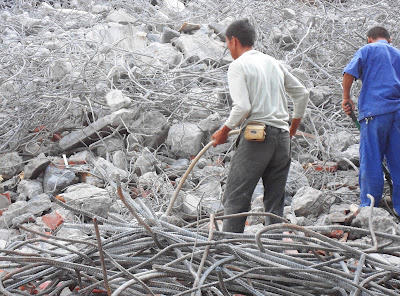Abatement Testing and Certification: What You Need to Know Before Renovating Your Property
Introduction:
Abatement testing and certification is an important aspect
of renovating any property, as it helps to ensure that the building is safe and
healthy for occupants. In this article, we will discuss what abatement testing
is, why it is important, and what you need to know before renovating your
property.
What is Abatement Testing?
Abatement testing is the process of identifying and measuring the presence of hazardous materials, such as asbestos, lead, and mold, in a building. This testing is typically conducted by certified professionals Abatement Testing New Jersey who have the necessary training and equipment to safely and accurately test for these materials.
Why is Abatement Testing Important?
Hazardous materials, such as asbestos and lead, can have
serious health implications for those who are exposed to them. Asbestos, for
example, can cause lung cancer, mesothelioma, and asbestosis. Lead exposure can
cause damage to the brain and nervous system, and can also cause developmental
delays in children. Mold exposure can also cause respiratory problems, as well
as other health issues. By identifying these hazardous materials through
abatement testing, building owners and occupants can take steps to address the
problem and minimize exposure.
What to Know Before Renovating:
Before renovating a property, it is important to have an
abatement test conducted to determine if any hazardous materials are present.
If hazardous materials are found, they must be removed or contained before any
renovation work can begin. This can require additional time and expense, but it
is necessary to ensure the safety of those who will be occupying the building.
It is also important to choose a certified abatement testing
company to conduct the testing. These companies have the necessary training and
equipment to safely and accurately test for hazardous materials. Additionally,
they have the knowledge to provide the necessary recommendations for removal or
containment of these materials.
In addition to abatement testing, it's important to also
consider getting a pre-renovation inspection, which helps to identify any
potential issues that may arise during the renovation process. This includes
everything from structural issues to the presence of hazardous materials.
Conclusion:
Abatement testing and certification is an important aspects
of renovating any property. It helps ensure that the building is safe and
healthy for occupants by identifying and measuring the presence of hazardous
materials, such as asbestos, lead, and mold. By conducting abatement testing
and choosing a certified abatement testing company, building owners and
occupants can take steps to address any hazardous materials and minimize
exposure. It's also important to consider getting a pre-renovation inspection
to identify potential issues that may arise during the renovation process.


Comments
Post a Comment